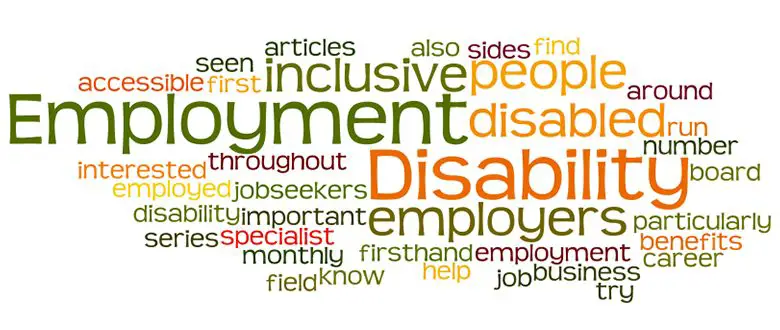
Disability and employment: gaining experience
Jane Hatton, who manages Evenbreak, a not-for-profit job board run by disabled people for disabled people, publishes her monthly article on the subject of employment and diversity.
#DHgurus
One of the challenges faced by some disabled job seekers is the length of time since they were last employed, and in some cases they may never have been employed. This can cause a range of problems, including the gap on the CV, and also the lack of recent experience of being in a workplace environment.
If this is the situation you are in, you might like to consider doing some unpaid work for a while. This could include voluntary work, an internship, a work placement or some work experience.
This has to be thought through, because although voluntary work is unpaid, and usually part-time, you are still making a commitment which has to be honoured. You need to ensure that the role is something you are genuinely interested in and prepared to give time to.
The benefits of doing some voluntary work can include:
- Becoming used to having a structure to the day – having to be somewhere for a certain time, having a routine to follow
- Gaining experience in new skills, or brushing up on old skills
- Often training is offered to new volunteers which is valuable for learning new skills
- Gaining real work experience which will give you skills you can use in paid employment
- Showing future employers that you have recent work experience, and are prepared to work hard to gain a job
- Having a sense of purpose – doing something worthwhile that helps other people
- Increasing self-esteem and confidence
- Social contact – meeting new people with similar interests
Don’t forget to bear in mind what it almost certainly won’t offer:
- A salary (other than sometimes out-of-pocket expenses)
- A job, or the promise of a job
- Security
There are many kinds of volunteer work available, and most charities are desperately trying to attract new volunteers. Voluntary work can range from cleaning, gardening, admin, driving, shopping, advising, listening, befriending, doing maintenance jobs, talking to people, helping to look after people – the list is endless.
Many volunteer roles, particularly those where you would be working with vulnerable people or children, will require you to have a DBS check. This means that the charity would have to ask the Criminal Records Bureau if you have a criminal record. Having a crime on your record doesn’t mean you definitely wouldn’t be offered a volunteer post – it would depend on the crime, when it took place and the kind of role you are applying for.
If you like the idea of doing some voluntary work to increase your experience, make your CV look better or just because you want to give something back to the community, ask yourself the following questions:
- Am I prepared to make a regular commitment to giving time to voluntary work?
- Do I have the skills necessary for a particular role?
- Am I prepared to learn new skills and work with people I don’t know?
- Is this reallywhat I want to do?
If the answers are all yes, then there are a number of places you can go to find voluntary work in your area:
- A site called “Do It” where you can search for volunteer opportunities in your area
- Voluntary Worker gives advice on looking for and applying for voluntary roles in the UK and overseas
- www.volunteeringcounts.org.uk – another website with information on voluntary work
- Talk to your local Council for Voluntary Service – they will know which groups in the area are currently looking for volunteers. Your local council will tell you where to find them.
- Have a look on online job boards – some have a section for volunteer roles. The job board I run specifically for disabled job seekers (www.evenbreak.co.uk) includes some volunteer roles, as do many other job sites.
- If you have a particular interest in working with, say, animals, or children or conservation, then it might be worth approaching the relevant charities to see how they attract volunteers. For a list of over 160,000 charities registered in the UK, see the Charities Commission site where you can search for the areas you are interested in. There may also be smaller charities in your area not registered, and your local Council for Voluntary Service will know of those.
Unpaid work may not seem an attractive idea, and it wouldn’t suit everyone, but it can be a very fulfilling way to use your time and learn new skills, and always looks good on a CV.
By Jane Hatton
Get in touch by messaging us on Facebook, tweeting us @DHorizons, emailing us at editor@disabilityhorizons.com or leaving your comments below.